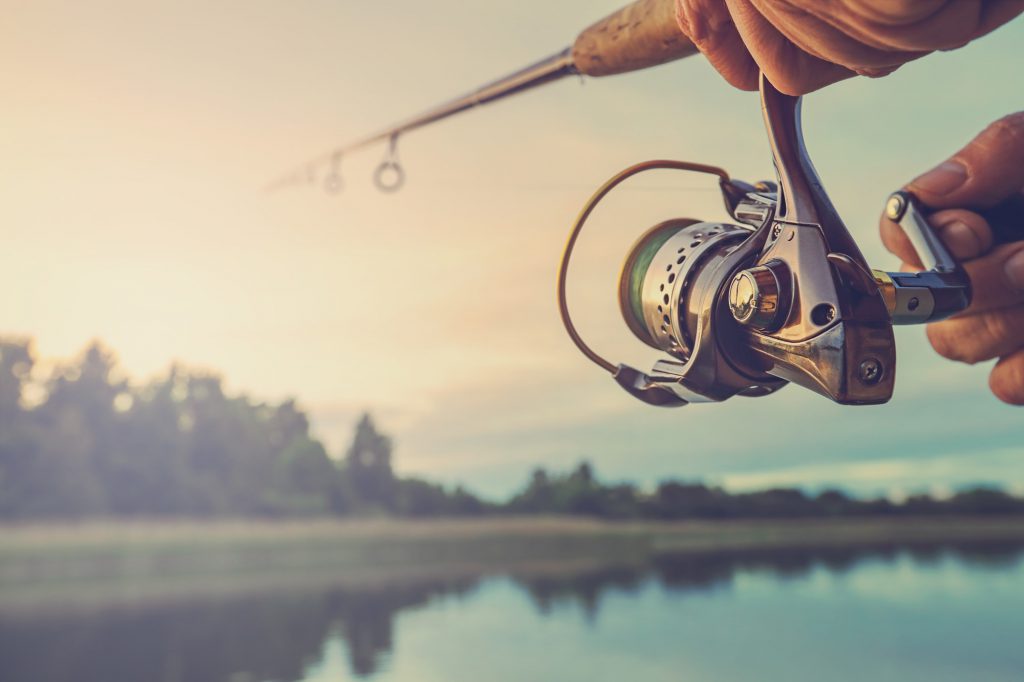
You’re excited to get out on the water and we’re glad to have you! When you’re on one of our boats, we want to make sure you’re having a great time. We also want to make sure that you stay safe while you’re on board.
We have the following fishing tips and safety tips will ensure you have the best trip possible after we welcome you onboard our vessel. Continue reading this article to learn how to be safe and have a great time on the water.
Keep Safe with these Safety & Fishing Tips
Whether you’re trying to catch a flounder or one of the many other fish in the sea, we can get you there. Use these following tips and you’ll stay safe while you’re out on the open waters.
Check Weather Updates
Checking the weather the week before isn’t enough to make sure you’re going to have favorable conditions. Check the weather up until the moment that you get on the boat and check throughout the trip as needed depending on how far out you go.
When you’re offshore, the weather can change very quickly, so you need to make sure you’re not going to run into some ugly weather.
Know Where Safety Equipment Is Kept
Having safety equipment onboard isn’t very helpful if you don’t know where it is. Make sure to check the equipment before you leave on your boat — don’t assume it is still there and functioning well. When you’re on our charter, we check this for you so you don’t have to worry.
Keep First Aid Kits Nearby
Before leaving the shore, make sure nothing in the kit has expired. You should also keep the kit where it is easily accessible. You never know when you might fight a big fish that has a bad attitude and a need for vengeance.
Wear Clothing Suitable for Offshore Conditions
While it might not feel very cold on the shore, when you get out to sea and the wind is going wild, it can cut right through you. The water is also much colder than it is near the shore.
When you’re dressing for your outing, layer your clothing. Don’t forget to put on sunscreen and wear a hat to keep yourself protected from UV rays. Even if you think your skin can stand up to the sun, play it safe because even a small amount of exposure can mean painful burns and skin damage.
A good pair of sunglasses will keep you from experiencing too much glare off the water. You’ll also protect your eyes from flying hooks in case they come flying — which is common.
Bring Plenty of Food & Water
While you might plan on being out to sea for a short time, it is important that you bring plenty of food and water. You never know when you might have to stay out to sea longer. Being hungry when you’re out riding the waves can be near unbearable so make sure you have enough food to support you.
Maintain Good Posture
When it comes to the time when you’ve got a big fish on the line, you want to use good posture so you don’t hurt yourself reeling the fish into the boat. Keep your back straight, bend your knees and use your weight to bring the fish in. Some of the fish you’ll catch aren’t going to be ready to come in without a fight, so be ready.
Work with the waves vs. working against the waves when you’re bringing the fish in. You don’t want to tire out before the fish does.
Don’t Bring Alcohol
Even if you aren’t the person driving the boat, it is recommended that you don’t bring alcohol onboard. If you or someone else on the boat is intoxicated, they are more likely to get hurt while they are on the boat. Save the alcohol for the shore.
Be Careful When Handling Tackle
You’re excited to get fishing — and you should be! But you need to be careful with the tackle. Many of the items in the tackle are sharp and when you’re fishing, they are traveling at a high rate of speed.
Before you cast your line out, make sure you look behind you to check and see if anyone or anything is behind you. You don’t want to hook anything besides for a fish.
Make sure to keep your tackle off the ground. Not only is tackle on the ground a tripping hazard but if someone steps on it, the sharp parts might go through their foot. If you get a fish hook stuck in your finger, you should never use your hands to get the hook out but instead, use pliers.
Fish With an Experienced Crew
Whether you’ve been boating and fishing for a long time or not, you should always go fishing with an experienced crew. If you fish with the wrong crew, you’re not likely to have a great fishing experience and it could even be dangerous.
Choosing the right crew to fish with is one of the most important safety tips you’ll learn in this article because without an experienced crew, even the safest passengers are at risk.
Get Your Fish On
Now that you know these safety and fishing tips, you’re ready to hit the water. If you have any questions or you’re ready to schedule, give us a call. We are more than happy to help you prepare for the trip and we look forward to seeing you.
